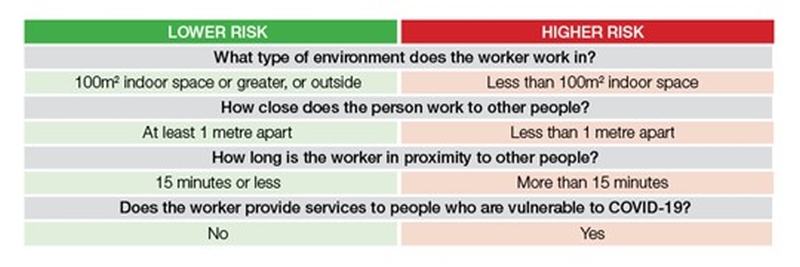The Government has not made vaccinations mandatory for workers in the construction industry as part of its COVID-19 response. However, it has stated publicly that there may be instances where it may be appropriate for employers in non-mandated industries to make vaccinations mandatory for workers in specific roles or undertaking certain jobs.
This lack of clarity has created a level of uncertainty for many businesses in the civil construction industry, including those working for third parties – such as clients – that are introducing COVID-19 vaccination requirements for anybody accessing their premises or work sites.
To help resolve this uncertainty, the Government Is passing legislation under urgency this week. This legislation will allow the creation of a new tool for businesses known as the Vaccination Assessment Tool. It will also introduce a requirement for employers to provide paid time off for employees to get vaccinated, as well as a four weeks’ paid notice period for any employee who is having their employment agreement terminated due to their decision not get vaccinated.
To support our members in understanding the new tool, we have developed this Q&A drawing on what we know so far and updates provided by Business NZ.
What is the Vaccination Assessment Tool?
The Government has announced its intent to create a risk assessment tool, known as the Vaccination Assessment Tool, to help businesses assess the appropriateness of introducing COVID-19 vaccination requirements for staff undertaking various kinds of work.
Legislation enabling creation of the tool is being passed under urgency this week in the form of amendments to the COVID-19 Public Health Response Act 2020. This legislation will come into effect the day after it is passed and the assessment tool will then be available for businesses to use, once regulations are made in mid-December under the amended law.
What will the Vaccination Assessment Tool do?
The tool will specify four key risk indicators businesses should consider when assessing whether it is appropriate for vaccines to be mandated for staff in different roles (see graphic below).

At least three of these indicators will need to fall into the ‘higher risk’ category before it would be reasonable to require vaccination for particular work. Employers will still need to work through any potential employment consequences of requiring vaccination.
At this stage CCNZ's advice is to tread carefully. The above seems quite simplistic and there may be other factors you need to consider when making a decision.
Will the Vaccination Assessment Tool assessment override my company’s existing risk assessment?
No – and this is an important point. This new process won’t override risk assessments that businesses have already done under the existing health and safety guidelines. Businesses can choose which one they use, and any assessments done to-date remain valid. We understand further testing and refinement will happen over the next few weeks.
What if a third party – such as a client – requires workers to be vaccinated to work for them or enter their sites?
Employers will be able to require workers to be vaccinated against COVID-19 in instances where a third party has made this a condition (for example, to access their premises to work). However, just like using the tool, employers will need to work through any potential employment consequences of requiring vaccination for this reason.
What else could I consider in my workplace, in addition to or instead of requiring workers in certain roles to be vaccinated?
Contractors should not just be focused on vaccinations as their sole, or even primary means of mitigating the risk of COVID-19. The Ministry of Health has said that as New Zealand's vaccination numbers increase, we will see fewer cases overall and less severe symptoms, but more of the cases we do see will be in fully vaccinated New Zealanders (due to the fact that there will be fewer unvaccinated people in the population).
Other measures that could be considered are:
- People working from home
- Active identification of symptomatic people
- Routine use of masks
- Frequent hand and workplace sanitisation
- Social distancing
- Ventilation and air cleaning within indoor/confined spaces
- Using work bubbles to minimise the impact of a potential positive case
Are there other factors to consider?
Yes, there are. Mandated vaccinations will cause concerns for these who do not want to be vaccinated but equally the decision not to mandate vaccination may create concerns for vaccinated people who do not want to work with unvaccinated people.
This is a stressful time for everyone so take time to check in with how people are going and access the support and information available through Mates in Construction.